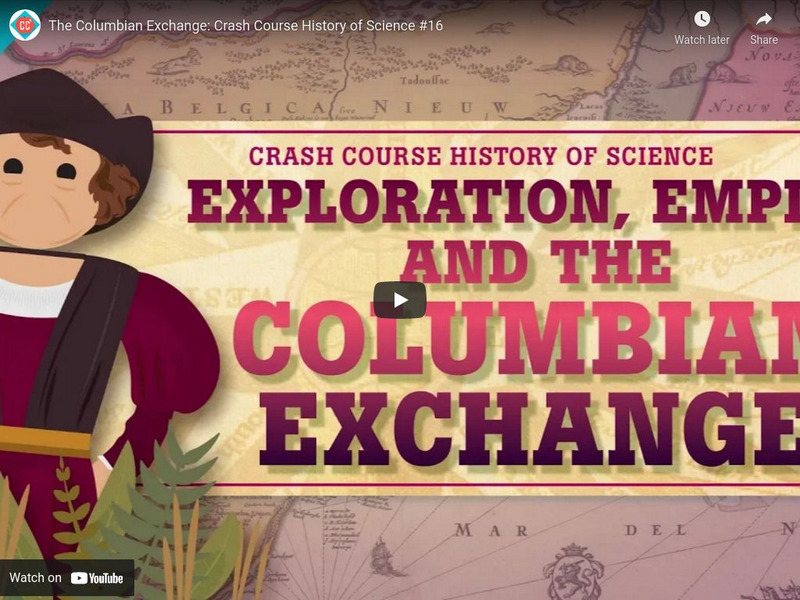Macat
An Introduction to John Stuart Mill's Utilitarianism
If a goal is worthy are any means justified to achieve this goal? Yes, according to John Stuart Mill. Introduce viewers to Mill's concept of Utilitarianism with a short video that used an animated tale of a battle for a city to...
Macat
An Introduction to Aristotle’s Nicomachean Ethics
Discover Aristotle's view of happiness, or eudaimonia, with a short video that analyzes the Greek philosopher's Nicomachean Ethics. An applicable example of finding the golden mean when pursuing happiness connects ancient Greek...
History Tube
The 17th Century: Gateway to the Modern World
The key ideas in this 50-minute video lecture is that commerce and trade transformed the seventeenth century, that wars previously fought over religious beliefs transformed into wars over economic resources, and that the quest for goods...
Crash Course
Crash Course History of Science #12: The Scientific Revolution
So, what exactly is a scientific revolution? Is it more than just moments in time Historians use to mark the beginning and ending of things through time? In this video, explore some ideas and how they fit into science and the search to...
National Science Foundation
National Science Foundation: Green Revolution: Discover
As scientific researchers explore cave formations, learn how science and engineering have resulted in advancements that have changed our lives dramatically. Now more than ever, the boundaries between science, technology, and engineering...
Crash Course
Crash Course History of Science #18: The New Chemistry
The Scientific Revolution in Chemistry did not begin until the 1770s. Trace the developments in Chemistry from the Phlogiston Theory to the New Chemistry in this video. Learn how chemistry became more quantitative and less qualitative...
Crash Course
Crash Course History of Science #17: Newton and Leibniz
Who do we have to thank for inventing calculus? Whether you love or hate it, the credit goes to two people - Sir Isaac Newton and Gottfried Wilhelm von Leibniz. Learn about their myriad of accomplishments in science and math during the...
PBS
Pbs Teachers: Kart Racing
Explore how gears work, and examine the gears on a race kart. Watch two kids use the scientific method to find out which gear gives them the best performance.
Bozeman Science
Bozeman Science: Engaging in Argument From Evidence
Paul Andersen explains the importance of argumentation in improving both understanding and design. This video begins with a discussion of the heliocentric and geocentric model of the Universe that eventually lead to the Copernican...
PBS
Pbs Learning Media: Victoria, Season 3: The Great Exhibition
Explore the landmark event that came to symbolize the Victorian era, the 1851 Great Exhibition in London, in this media gallery from the 2019 series Victoria, Season 3, Masterpiece. Despite the surrounding controversy, the success of...
Crash Course
Crash Course History of Science #16: The Columbian Exchange
Revolution in Europe during the 1400s through the 1700s came in many forms - political, cultural, religious, and scientific. But we can't fully understand this idea without "exploring" another one - the so-called Age of Exploration. This...
Other popular searches
- The Scientific Revolution
- First Scientific Revolution
- Scientific Revolution Video
- Causes Scientific Revolution
- Galileo Scientific Revolution











